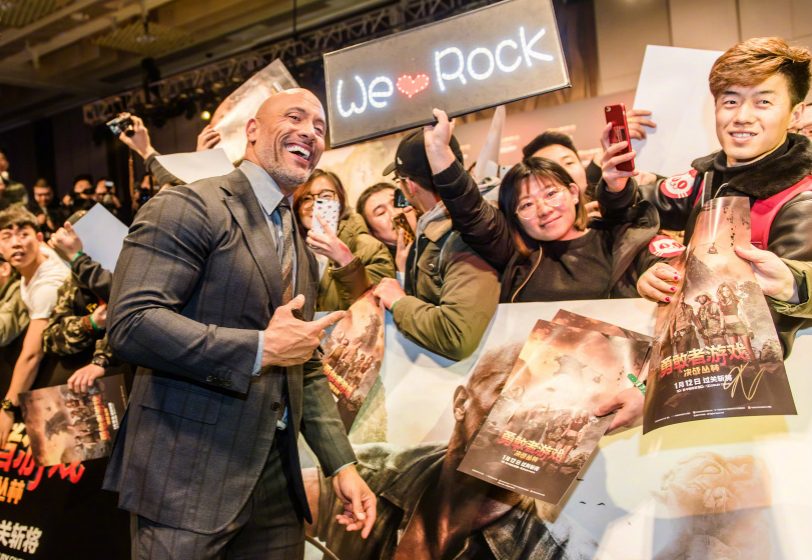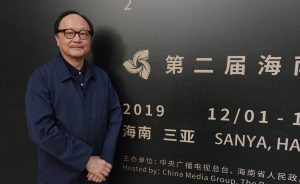You might not yet recognize the brand Endeavor as it has only been around for about a year, but you have likely heard of WME-IMG if you work in entertainment.
In late 2017, WME-IMG, the leading American talent agency and parent company of Ultimate Fighting Championship and Miss Universe, rebranded itself as Endeavor, a new holding company. The same year, Endeavor Content was launched as the film and TV financing and sales arm of Endeavor. As a company that’s not afraid to disrupt and reinvent itself, Endeavor’s ambition and savviness is demonstrated in the China market as well.
In China, Endeavor’s operations are managed through Endeavor China and Perfect Village. Endeavor China is Endeavor’s subsidiary formed in June 2016 through a Sequoia Capital China-led investment group that includes Tencent Holdings, FountainVest Partners and Focus Media. Perfect Village is a China-based production company that is Endeavor Content’s joint venture with Perfect World and Village Roadshow.
Recently, CFI caught up with Endeavor Content partner Alexis Garcia who oversees the group’s activities in China.
How important is the China market for Endeavor?
We continue to see a lot of growth potential in China. Two years ago we formed a subsidiary, Endeavor China, with in-market partners Sequoia, Tencent, and FountainVest to help us expand in the region. The company has roots that go back 25 years in sports and media. We’ve continued to see a greater demand for entertainment in China and our company has been able to take advantage of that. Given this demand and the infrastructure we have been able to build with the support of our partners, we have been able to ramp up activities in areas such as film and television financing, development and sales. Additionally, now that we have people on the ground who have a real understanding of the Chinese market, we’ve been able to put together deals like David Goyer with Tencent, signed “Mulan” actress Crystal Liu, and help connect our talent clients with Chinese stars like we did with Dwayne Johnson and Wu Jing.
WME-IMG teamed up with Village Roadshow Entertainment and China’s Perfect World Pictures over a year ago to launch film & TV production venture Perfect Village Entertainment. What projects are Perfect Village currently working on?
Perfect Village’s latest film release is Zhang Yimou’s “Shadow.” It received a record-breaking 12 nominations at Taiwan’s Golden Horse Awards this year, and Endeavor Content handled international sales on the film and closed distribution deals around the world, including in the US where it will be seen in theaters, something a film like this deserves. Perfect Village also has “The Whistleblower,” which commenced production in Australia recently. This film is the biggest Chinese-Australian co-production of its kind with the biggest producer in China, Bill Kong. And in post-production is “Guilt by Design,” a Hong Kong action and suspense thriller that was shot last year. Meanwhile, we are building a development slate with Perfect Village CEO Ellen Eliasoph through our connections to IP and talent.
Is Perfect Village Entertainment concerned about China’s increasingly wide crackdown on Western influence? Over the past year, has the overall climate led to any changes in the company’s content strategies?
Fortunately, we have strong partners on the ground in China to help us navigate the region, and keep us focused on shepherding content that serves audiences there. The changes that have been put in place are helping further legitimize the entertainment business in China, and are putting companies with credentials like Perfect Village in a strong position to succeed.
Is it true that Chinese studios and producers are not used to working with agencies? If so, how do you tackle this situation?
Endeavor Content’s core business is packaging, raising funds, co-financing, and/or selling film, television and non-fiction projects. Its sister company WME represents artists across film, television, books, music, theater and digital. We intentionally have been more selective with our representation business in China. We are not looking to compete with the local market, but to provide opportunities to Chinese artists who we feel can take advantage of the WME network and can cross-over beyond China. Additionally, equally important is helping WME’s non-Chinese clients cross-over into the region. For example, we recently booked Lee Pace into a guest starring role in Youku’s “Flying Tiger” series. This is very valuable in helping our clients build a profile in the country.
You advised filmmaker David Goyer on his groundbreaking deal with Tencent Pictures. How exactly did you help the two parties reach an agreement?
We connected David Goyer and Tencent’s Howard Chen. Howard is a huge fan of David’s so first and foremost, they connected on a creative level. David has an authentic interest in the China market and believed that having a deal with a Chinese partner would provide him more flexibility than re-upping at a studio, which has proven to be true. Tencent could see David’s passion given the time and resources he invested in trips to China to meet with Chinese creators and artists. By the time we were negotiating the deal it was clear that both parties saw the benefits of a relationship.
China became the second largest TV market in the world this year, overtaking the U.K. and behind the U.S. What opportunities does China’s fast-growing TV market present for international collaborations?
We are considering a number of opportunities in China to expand in this market, both on individual projects and in terms of company investments and partnerships. We make efforts across the companies to contribute to projects that could work locally, and we believe that between Endeavor China, Endeavor Content and WME, it won’t be long before we find the golden ticket — a TV series that can work both in China and internationally.
In addition to film and TV, what other entertainment sectors are rapidly growing in China?
Podcasts, platform-based series, animation, live entertainment, endorsements, content-related technologies.
Do you have any advice for American entertainment talent looking to get involved in the Chinese film industry?
The best relationships to date between Hollywood talents and the Chinese film industry came from authentic investments of time, energy and creativity in understanding the Chinese market. The Russo brothers made multiple trips and dedicated executives to the Chinese industry on the road to launching Agbo. I noted David Goyer above. Dwayne Johnson’s success in the market has come with hard work and deep engagement with audiences. For emerging talent, there is a constant stream of Chinese movies and series looking for participation from Hollywood writers, directors and actors. Finding projects that can introduce one’s work to Chinese audiences, whether in international or local language content, can pay great dividends down the road. And for producers, it’s important to meet and maintain communications. If that takes trips and late night WeChat calls, then so be it. Presence and recognition in the region come through the cultivation of genuine and collaborative relationships. Additionally, it can’t be emphasized enough how important it is to have strong local partners to help navigate the region. We are very fortunate to have that Tencent, Sequoia and FountainVest to help guide us.








